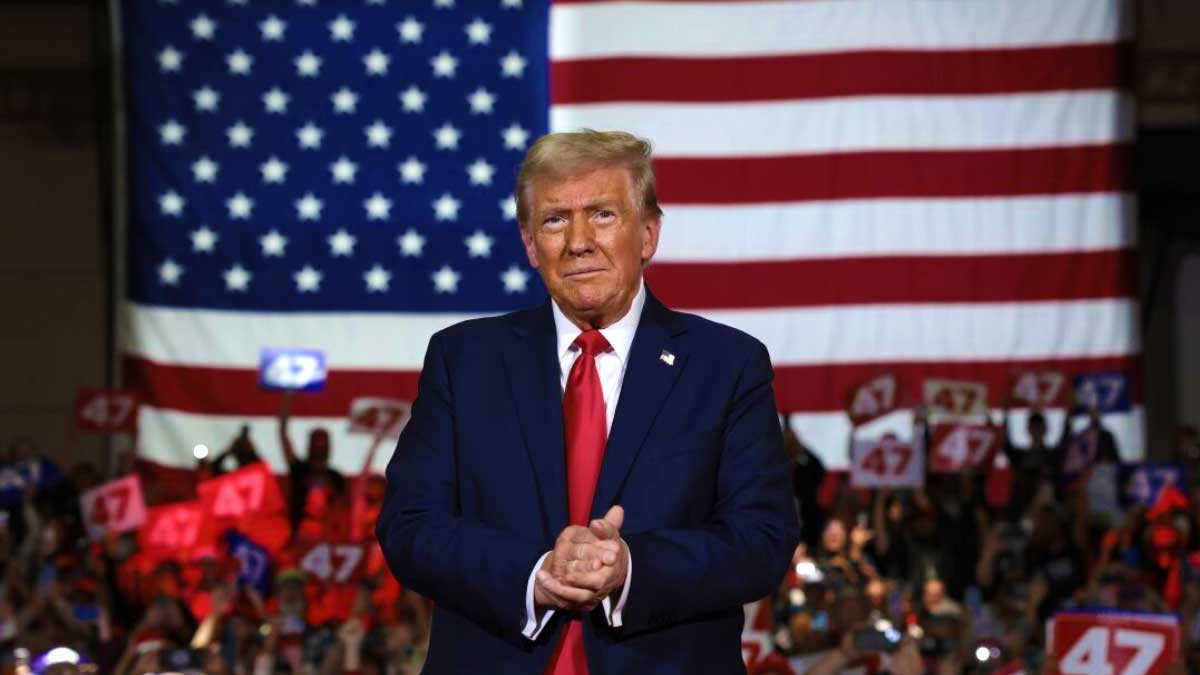- Home
- Billionaires
- Investing Newsletters
- 193CC 1000
- Article Layout 2
- Article Layout 3
- Article Layout 4
- Article Layout 5
- Article Layout 6
- Article Layout 7
- Article Layout 8
- Article Layout 9
- Article Layout 10
- Article Layout 11
- Article Layout 12
- Article Layout 13
- Article Layout 14
- Article Sidebar
- Post Format
- pages
- Archive Layouts
- Post Gallery
- Post Video Background
- Post Review
- Sponsored Post
- Leadership
- Business
- Money
- Small Business
- Innovation
- Shop
Recent Posts
Trump Named Time’s Person of the Year for Second Time

On Thursday, Time magazine honored Donald Trump as its “Person of the Year” for 2024, marking the second time the former president-elect has received the prestigious recognition. Time’s decision was based on his remarkable comeback in the political arena, culminating in his latest election victory. The magazine credited Trump with orchestrating “a comeback of historic proportions,” which it described as the driving force behind “a once-in-a-generational political realignment.” Time highlighted his role in “reshaping the American presidency and altering America’s role in the world.”
Trump’s selection for the title came after a contentious and heated election cycle, with the former president overcoming significant challenges to reclaim the presidency. His victory in the 2024 election underscored his enduring influence in American politics, particularly among his loyal base of supporters. Time emphasized his ability to command attention and steer the political narrative, shaping policy debates and national discourse over the past several years.
The decision to crown Trump as “Person of the Year” was not without competition. A diverse range of individuals made the shortlist, including Vice President Kamala Harris, who had her own share of political achievements; Kate Middleton, the Princess of Wales, whose influence in the British monarchy continues to grow; Israeli Prime Minister Benjamin Netanyahu, who faced political challenges and controversies in his leadership; Mexican President Claudia Sheinbaum, who navigated the complexities of governing Mexico; billionaire Elon Musk, whose influence on technology, space exploration, and global markets is profound; and podcast host Joe Rogan, whose voice has resonated across social media platforms.
In a conversation with Time, Trump discussed several key political issues, including his stance on the January 6 Capitol riot. He indicated that, if elected, he would consider pardoning individuals involved in the violent assault on the Capitol, but emphasized that such decisions would be made on a “case-by-case” basis. Trump claimed he could take such action within his first few minutes in office, a statement that was controversial, given his role in inspiring the events of January 6, 2021, after his loss in the 2020 presidential election. Time highlighted this as a significant aspect of Trump’s legacy, noting his direct involvement in inciting the violence that unfolded at the Capitol.
Sam Jacobs, Time’s editor-in-chief, reflected on Trump’s impact on American politics and history. He remarked that since Trump began his presidential campaign in 2015, “perhaps no single individual has played a larger role in changing the course of politics and history than Trump.” Jacobs acknowledged Trump’s polarizing influence, noting that his impact on the political landscape, whether positive or negative, is undeniable. The former president’s defiance of political norms and his unorthodox approach to governance have left an indelible mark on the United States and the world.
Despite being a common occurrence for newly elected U.S. presidents to be named Time’s “Person of the Year,” there have been notable exceptions in history. Every U.S. president since Franklin D. Roosevelt, with the exception of Gerald Ford, has been selected for the title at least once. Time’s history of honoring other influential figures over U.S. presidents includes Queen Elizabeth II, who was chosen over President Dwight D. Eisenhower in 1952, and the Apollo 8 astronauts, who were honored over Richard Nixon in 1968. Eisenhower, however, received the title in 1944 for his role during World War II and again in 1959 after his second term. Nixon, who was elected president in 1968, was chosen for the title in 1971 and 1972. John F. Kennedy was named Time’s “Person of the Year” in 1961 after completing his first year in office.
Trump’s 2024 selection marks the second time he has been honored with the title, having first received the recognition in 2016 after his stunning election victory over Hillary Clinton. Since then, other notable figures have been chosen for the honor, including President Joe Biden and Vice President Kamala Harris following the 2020 election. Pop star Taylor Swift, who saw a resurgence in her career and cultural influence in 2023, also graced Time’s cover that year. Trump himself has had a complicated relationship with Time’s selection process. In 2015, he publicly doubted that he would ever be chosen, stating that Time “would never pick me as person of the year” after German Chancellor Angela Merkel was named instead. In 2011, he claimed Time had “lost all credibility” when he was left off the magazine’s list of the most influential people, labeling the list a “joke” and dismissing the magazine as a “stunt.” However, after being named Time’s “Person of the Year” in 2016, Trump reversed course, calling the honor a “tremendous” one.
Time’s choice to feature Trump in 2024 is a testament to the enduring influence of the former president in American politics, despite facing multiple controversies during his first term in office. His ability to galvanize his supporters, maintain a strong presence in the political conversation, and challenge traditional political norms underscores his lasting impact on the nation. Trump’s second selection as “Person of the Year” further solidifies his role as a transformative and divisive figure in modern American history.
As Time acknowledged, Trump’s impact is undeniable, and his role in reshaping the political landscape has left a legacy that will be discussed and debated for years to come. Whether one agrees or disagrees with his policies or actions, there is no question that Trump’s influence on both the U.S. and the world remains profound.
Recent Posts
Categories
- 193 Countries Consortium Partner1
- 193cc Digital Assets2
- 5G1
- Aerospace & Defense48
- AI37
- Arts3
- Banking & Insurance11
- Big Data3
- Billionaires1,467
- Boats & Planes1
- Business332
- Careers13
- Cars & Bikes79
- CEO Network1
- CFO Network17
- CHRO Network1
- CIO Network1
- Cloud10
- CMO Network18
- Commercial Real Estate7
- Consultant1
- Consumer Tech194
- CxO1
- Cybersecurity73
- Dining1
- Diversity, Equity & Inclusion4
- Education7
- Energy8
- Enterprise Tech29
- Events11
- Fintech1
- Food & Drink2
- Franchises1
- Freelance1
- Future Of Work2
- Games149
- GIG1
- Healthcare79
- Hollywood & Entertainment203
- Houses1
- India’s 1000 Richest1
- Innovation46
- Investing2
- Investing Newsletters4
- Leadership65
- Lifestyle11
- Manufacturing1
- Markets20
- Media327
- Mobile phone1
- Money13
- Personal Finance2
- Policy569
- Real Estate1
- Research6
- Retail1
- Retirement1
- Small Business1
- SportsMoney42
- Style & Beauty1
- Success Income1
- Taxes2
- Travel10
- Uncategorized14
- Vices1
- Watches & Jewelry2
- world's billionaires1,436
- Worlds Richest Self-Made Women2
Related Articles
South Korea Plane Crash: A Tragic Loss and Global Mourning
The tragic plane crash at South Korea’s Muan International Airport on Sunday...
By 193cc Agency CouncilDecember 30, 2024H-1B Visa Debate Splits Trump Allies and Silicon Valley
The debate over H-1B visas has once again become a contentious issue,...
By 193cc Agency CouncilDecember 28, 2024Trump Moves $4B Stake in Truth Social Parent, Stock Drops 6%
Donald Trump recently transferred his 57% stake in Trump Media & Technology...
By 193cc Agency CouncilDecember 20, 2024House Rejects Trump-Backed Funding Bill, Shutdown Looms
The U.S. House of Representatives rejected a new government funding bill on...
By 193cc Agency CouncilDecember 20, 2024















Leave a comment